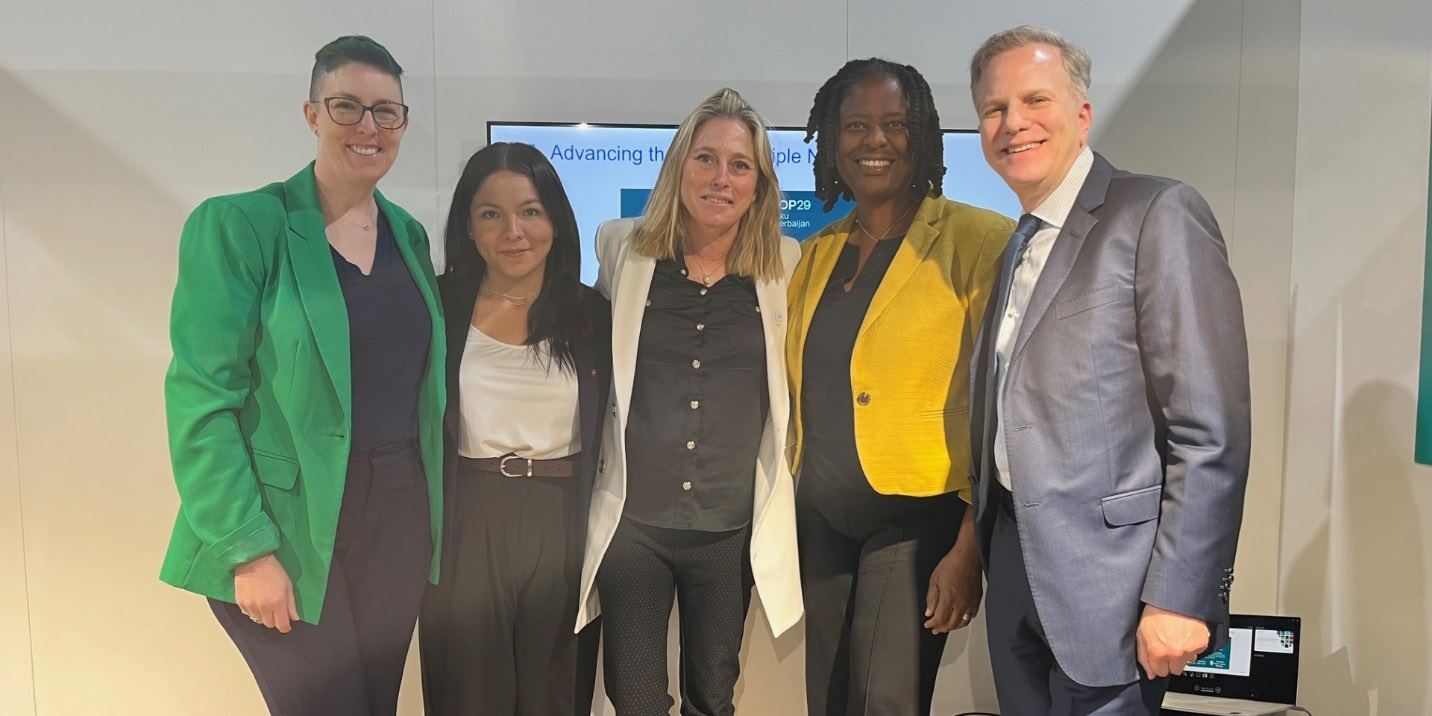ANS’s COP29 Week 1 delegation were, from left, Gale Hauck, Shirly Rodriguez, Lisa Marshall, and Seth Grae, pictured here with WNA director general Sama Bilbao y León (center). (Photo: Seth Grae)
COP29 was good for nuclear energy, but not so good for anything else.
That was one of Seth Grae’s takeaways from this year’s Conference of the Parties—or, United Nations Framework Convention on Climate Change (UNFCCC)—held for two weeks in November in Baku, Azerbaijan. Grae, chief executive of Lightbridge Corporation and chair of the American Nuclear Society’s International Council, attended with four other ANS delegates: ANS President Lisa Marshall, Gale Hauck, Shirly Rodriguez, and Andrew Smith.
Methane emissions from cows are surprisingly important as a greenhouse gas. (Photo: Martin Abegglen)
In discussing how to counter global warming, it’s pretty easy to argue that nuclear should be the major electricity source and heat producer to replace fossil fuels. At 6 grams per kilowatt-hour, it has the lowest carbon emissions of any energy source, according to the United Nations, and is objectively the safest form of energy for humans and the environment alike, again from a recent UN report.





